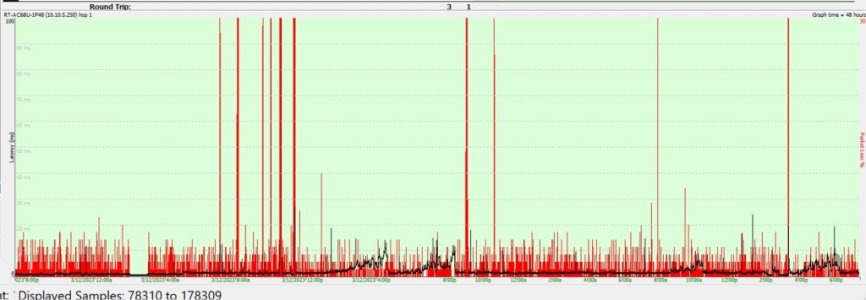How is the reliability / performance of ASUS WiFi Gaming Mesh Router RT-AC1900P.
I am planning to replace a non ASUS non mesh access point with one of these as ASUS mesh node and add one more of same model as an additional ASUS mesh node to my existing configuration.
Existing configuration consists of Main ASUS RT-AX92U router + ASUS RT-AX92U mesh node + Two Access Points (one of these two AP will be replaced with the above model if I purchase it)
I am planning to replace a non ASUS non mesh access point with one of these as ASUS mesh node and add one more of same model as an additional ASUS mesh node to my existing configuration.
Existing configuration consists of Main ASUS RT-AX92U router + ASUS RT-AX92U mesh node + Two Access Points (one of these two AP will be replaced with the above model if I purchase it)


